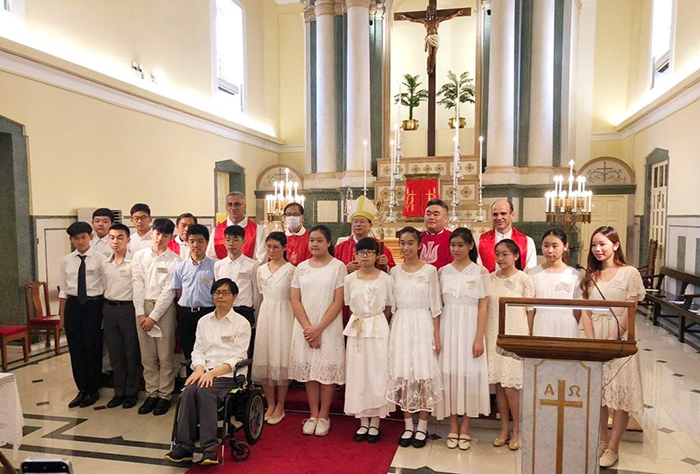Angela Chong
In the few weeks prior to the day for my Sunday school students to receive the Sacrament of Confirmation, I got increasingly anxious. I doubted whether they were adequately prepared. Realizing that their learning retention was limited, I invited them to reflect on four questions.
Firstly, I asked how they would introduce Jesus to a non-believer. Next, they would try to decide which of Jesus’ words they would choose to serve as their life motto. Also, they would briefly explain what they thought to be the message delivered by a given Bible passage. Lastly, they were to write a short prayer to Our Lady for a special intention.
The reflection questions were meant to remind my students that after receiving Confirmation, they would dedicate themselves to bearing witness to Christ’s work of Salvation. For this, they must be ready to guide people to Jesus by first telling them about him. Secondly, they should abide by Jesus’ teaching in their words and behaviour, always viewing matters from Jesus’ perspective. In addition, by pondering the message from the Bible verses, they would be reminded to seek frequent encounters with God through Bible reading. Finally, the short prayer to our lady would serve to arouse their awareness of the need to pray for others.
On the day when my students received the Sacrament of Confirmation, I was glad that the four reflective questions had helped them understand better Bishop Lee’s advice to them. In his sermon, the Bishop advised them not to see Confirmation as a “bye-bye sacrament.” He stressed that Confirmation should not mean the termination of their spiritual growth. They should not stop going to church; nor should they lose contact with the priests and mentors who have spent all those years nurturing them. Conversely, they should understand that while Confirmation marks the end of one stage of life just as high school graduation does, it also begins a new phase of their spiritual development. They should, therefore, be ready for greater dedication to their spiritual pursuit.
Moreover, as Bishop Lee has stated, now that they have received the Holy Spirit, they are empowered to grow in Christlikeness in their words and deeds. They should be prepared to write their own “Acts of the Apostles” in the sense that, just like the Apostles, they will learn to do the work of preaching, spreading the Good News of God’s Kingdom to the people around them.
My students naturally still feel the excitement about what happened on that important day. The moment when they were kneeling before the Bishop to be anointed on the forehead with chrism will remain an indelible memory for them. They may still be thrilled by the blessings showered on them and the many memorable snapshots taken with their relatives and friends. Those are undoubtedly memories to be treasured for the rest of their lives. Yet, what deserves a more treasured corner in their hearts is the advice from the Bishop.
Of great significance is the fact that we parents and teachers should also bear in mind that Confirmation is not a bye-bye sacrament. We should not stop playing our roles as the youngsters’ fellow travellers as they proceed on their spiritual journey. Instead, we should continue to accompany them, giving them guidance and support in their pursuit of genuine discipleship.


 Follow
Follow


